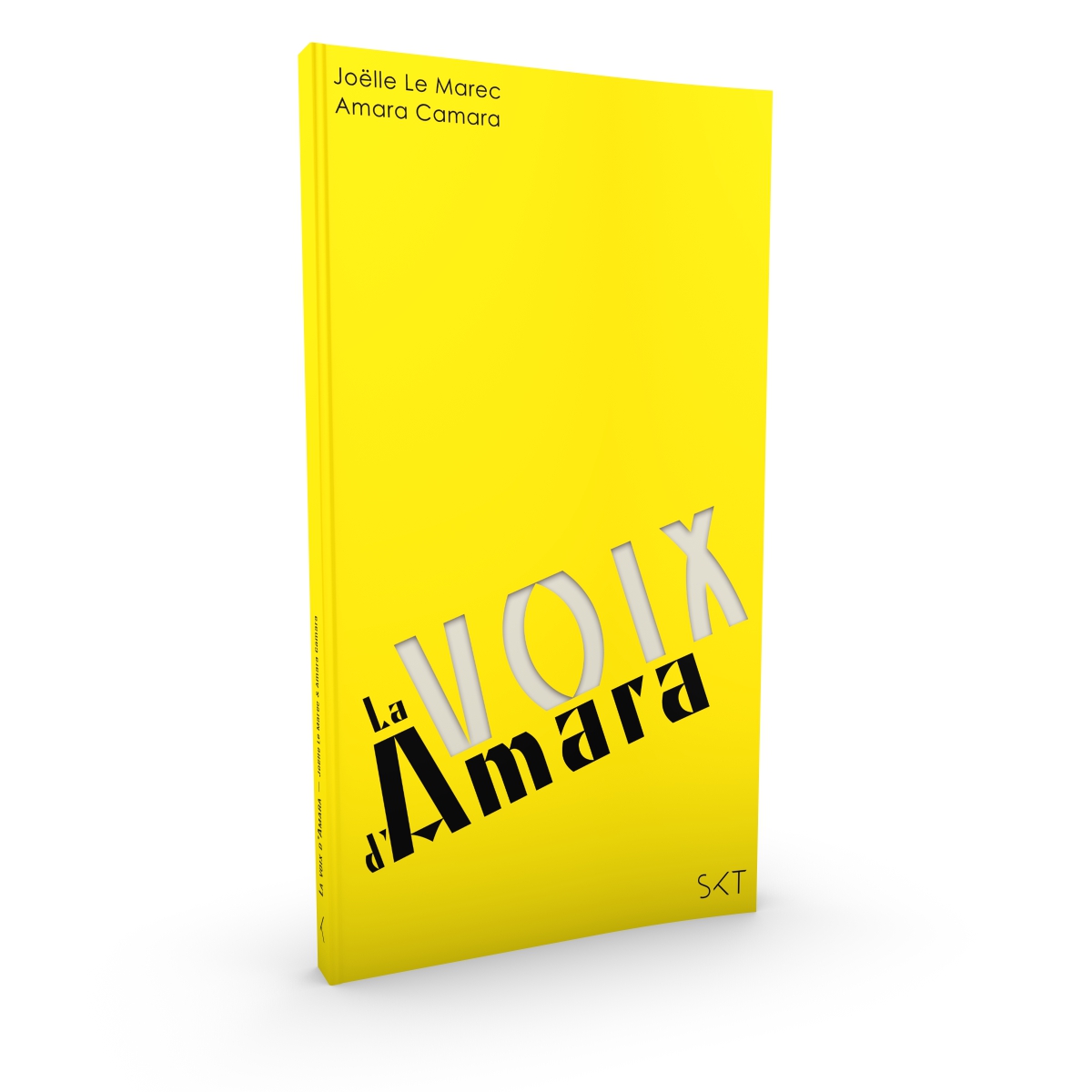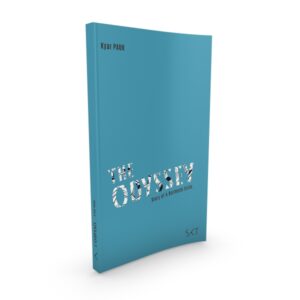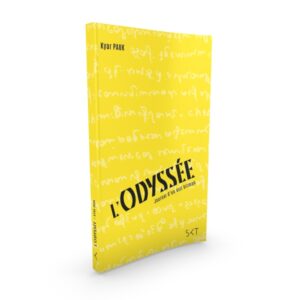Amara’s voice
12,90€
Amara CAMARA & Joëlle LE MAREC
152 pages, paperback, 12×22 cm
Description
The day she learns that one of her son’s friends can no longer accommodate a young migrant, Joëlle doesn’t hesitate. That evening, it was agreed by telephone that Amara would stay for 10 days. She had a few instructions: to prepare a good breakfast for him in the morning before letting him go out on the streets, a few rules about living together, and a warning: don’t ask these young people about their journey.
They kept a diary of their stay, which eventually lasted 9 months, during which time Joëlle taught Amara to read and write. A political and poetic diary to give a voice to those who experience migration.
The authors
Amara CAMARA is Ivorian, Guinean. He entered France on August 27, 2017, while still a minor. After meeting Joëlle Le Marec, he learned to read and write with her in just a few weeks, and began writing songs and poetry.
My artist name is Amssi:
A is for Action (I’m always in action)
M is for Million (I wanted to be a millionaire to lift my family out of poverty)
S is for Sun (it shines for everyone)
S is for Sociable (you have to get to know all kinds of people)
I is for Intelligence (what counts is doing things intelligently)
Joëlle LE MAREC is University Professor at CELSA, Sorbonne. The author of several books, she works on museums and libraries as places for the cultural expression of knowledge, but also on investigative practices and the relationship between science and society.
I’ve lived in La Chapelle for a long time. Since 2015, many new arrivals have been living on the streets, including isolated minors. Little by little, the obvious became clear: when borders close, you have to open your door. Knowledge about the world is pouring in, opening the way to new narratives, and I enter into a daily dialogue with Amara. For nine months, and beyond, we shared what we’d learned.
A word from the editor
Even though the news talks about migrants on an almost daily basis, and there’s one event after another about migration, hospitality, geopolitics and so on, it’s rare to really hear the voices of these migrants. That’s what makes this text so precious.
The power of Amara Camara’s very first texts and the finesse of Joëlle Le Marec’s narrative make this diary a necessary work.
It’s also a way of showing that everything is political: from writing to opening the door of one’s home.
On the first Sunday in October, I went to the cinema with one of my sons. We strolled along the Bassin de la Villette. There were groups of men sitting on the steps facing volunteers from BAAM, the migrant reception and support office, who were giving their French lesson in the open air.
I remember saying to myself that I wouldn’t forget the warm, nervous atmosphere of that Parisian evening: the journey to the Quai de Loire, the crossing of the square, the passage over the bridge above the lock, the discussion with Amaury about the memory of an evening at the cinema that had changed his imagination as a child. I remember these recollections, because this evening would perhaps itself be part of the collection of moments that precede the transformation of the course of things.
I told myself that after this evening, a part of insouciance would perhaps disappear, how do you know? In any case, insouciance has been gradually disappearing for years in Europe. I remember thinking that my two sons were once again intimately linked to this moment of change. For it was Raphaël who had talked to me about taking in a young African, Ivorian or Malian, who had recently arrived in France, for four or five days, until he was recognized as an isolated minor and taken into care by the Aide Sociale à l’Enfance. The young man had been sleeping for several days on a friend’s sofa. For months, I’d been looking for something to do other than rub shoulders every day with people from elsewhere, so far away and yet so close, in the squares of the Goutte d’Or, or in the queue outside the France Terre d’Asile office. In the mornings, I’d go to the baker’s to buy a few baguettes to give to the little groups that were waking up, with the painful feeling that I was doing more good for myself than for those unknown youngsters on the sidewalk.
The day Raphaël told me about his friend who could no longer continue to take in a young migrant aged 16 or 17, and that this might be an opportunity for me to get involved, I didn’t hesitate and it all happened in 24 hours. In retrospect, it was too hasty: I should have looked into the various volunteer host networks. But I’ll never regret it: how can you regret meeting a remarkable person, this one and no other? That evening, I think that the main change in my life will be the entry into the militant sphere of those who concretely help: I had imagined the transformations to come as a densification of friendships, links, militant solidarity apprenticeships. This was not to be. The change came when I met Amara, a 17-year-old from Côte d’Ivoire, and all that followed with those close to me and those he took it upon himself to introduce me to. Even today, I can count on the fingers of one hand the number of contacts I’ve had with members of the shelter network that had spotted and helped Amara when he found himself on the streets, a network I imagined to be the community of which I would become a part. The opening, the links will come from him. I don’t want to go into too much detail: we’re all doing what we can.
The problems come from inhumane policies, not from those who help.
That evening, it was agreed by telephone that Amara would stay for 10 days. I have a few instructions: prepare a good breakfast for him in the morning before letting him go out on the road, a few rules about living together, and a warning: don’t ask these young people about their journey. – Joëlle



